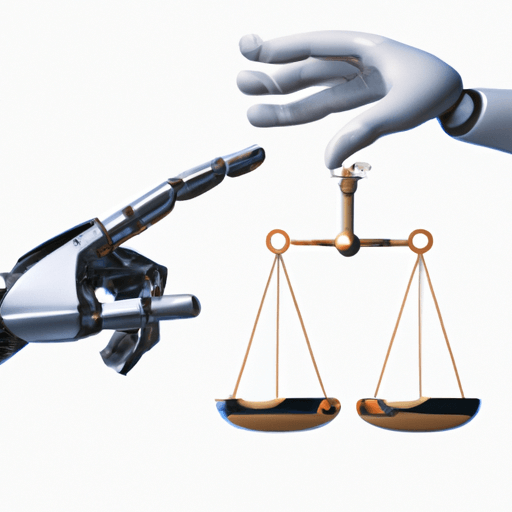Ethical Implications of Artificial Intelligence and Machine Learning
In this era of ubiquitous AI and Machine Learning technologies, we are faced with a slew of ethically driven dilemmas. The rapid proliferation of these technologies throw up numerous ethical questions that we must address. Consider, for instance, the societal implications of integrating automated decision-making systems into our everyday lives. As we delve into these issues, our goal is to examine these concerns from various perspectives.
Can AI and Machine Learning Discriminate?
A critical issue that surfaces when we consider automated systems is the question of discrimination. Can AI systems discriminate? Unfortunately, the answer is yes. AI systems, as they are designed and trained by humans, can unintentionally perpetuate and escalate existing biases. For instance, a hiring algorithm may discriminate against certain genders or ethnic groups if it was trained on biased data. This raises the question of accountability for such biases and demands for safeguards against them.
Privacy Concerns and Manipulation
Artificial Intelligence brings with it a unique set of privacy concerns. While AI applications can certainly improve our lives in numerous ways, they invariably rely on vast amounts of data. This data is often personal and sensitive. This raises the question of how we can preserve individuals' privacy and avoid the misuse of personal data.
Should Machines Make Decisions?
Arguably one of the most pressing issues is whether machines should be allowed to make decisions traditionally made by humans. As technology advances, AI and Machine Learning can make extremely complex calculations and predictions in a fraction of the time a human would take. But should a machine make critical decisions like hiring an employee, diagnosing a patient, or predicting criminal behavior? This question lies at the intersection of technology, ethics, and society.
Ethical Safeguards and Solutions
Recognizing the ethical dilemmas posed by AI and Machine Learning technologies, numerous solutions and safeguards have been proposed. From incorporating ethical considerations in the design of AI systems, to establishing regulatory oversight for these technologies, there are various ways to mitigate potential ethical risks.
A Multifaceted Perspective
It is crucial to tackle these ethical implications of AI and Machine Learning from various perspectives. This includes technologists, who design or work with AI, ethicists, who study moral philosophy, and policymakers, who create the rules within which we operate. Each perspective offers unique insights, highlighting the importance of a comprehensive, multi-disciplinary approach.
In conclusion, while AI and Machine Learning carry tremendous potential to transform our world, their ethical implications are complex and multifaceted, necessitating ongoing careful consideration by all stakeholders.


















Comments
Leave a Comment